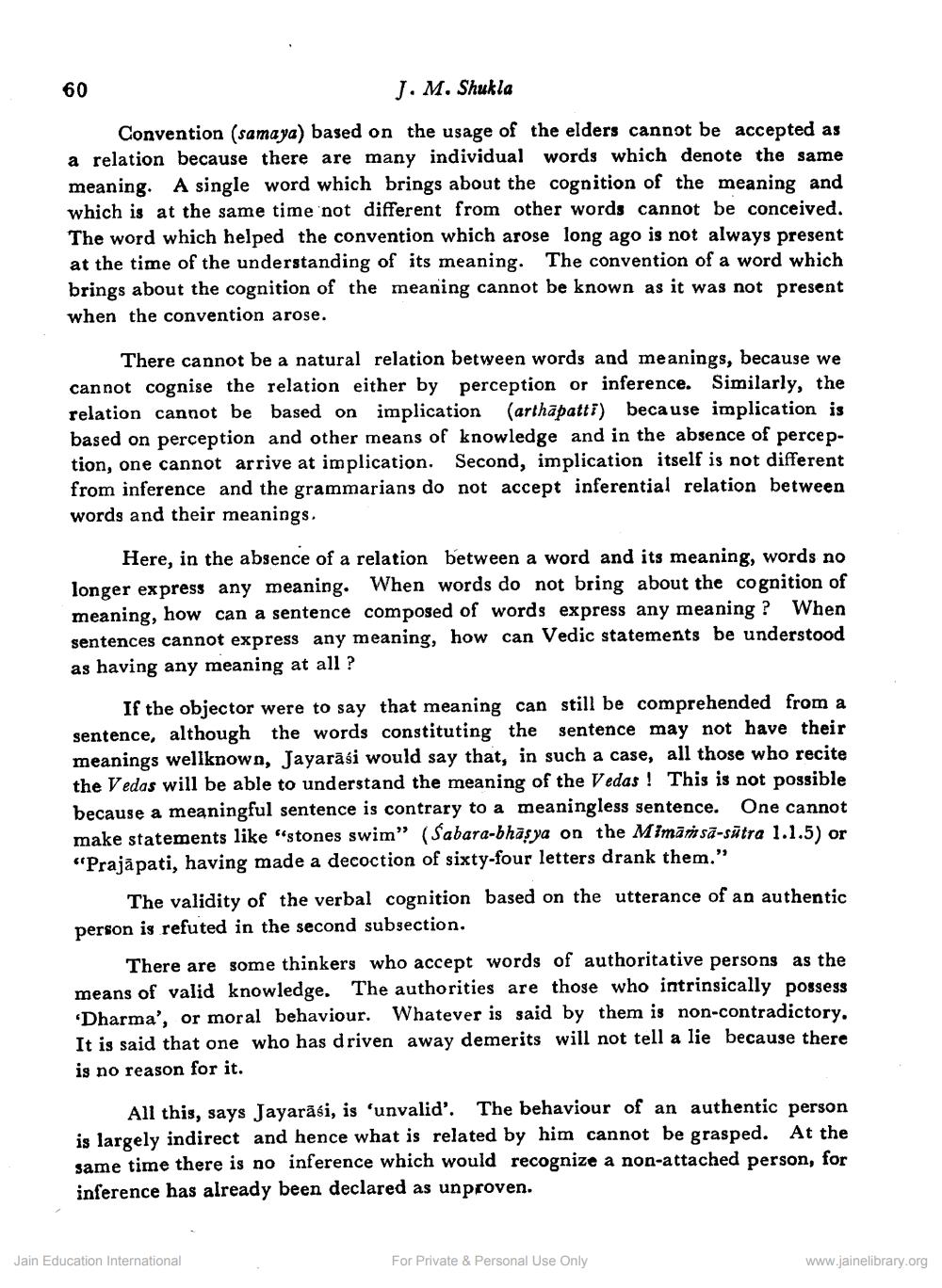Book Title: Jayarasi Criticism of Verbal Testimony Author(s): Jaydev M Shukla Publisher: Z_Aspect_of_Jainology_Part_2_Pundit_Bechardas_Doshi_012016.pdf View full book textPage 4
________________ 60 J. M. Shukla Convention (samaya) based on the usage of the elders cannot be accepted as a relation because there are many individual words which denote the same meaning. A single word which brings about the cognition of the meaning and which is at the same time not different from other words cannot be conceived. The word which helped the convention which arose long ago is not always present at the time of the understanding of its meaning. The convention of a word which brings about the cognition of the meaning cannot be known as it was not present when the convention arose. There cannot be a natural relation between words and meanings, because we cannot cognise the relation either by perception or inference. Similarly, the relation cannot be based on implication (arthapatti) because implication is based on perception and other means of knowledge and in the absence of perception, one cannot arrive at implication. Second, implication itself is not different from inference and the grammarians do not accept inferential relation between words and their meanings. Here, in the absence of a relation between a word and its meaning, words no longer express any meaning. When words do not bring about the cognition of meaning, how can a sentence composed of words express any meaning ? When sentences cannot express any meaning, how can Vedic statements be understood as having any meaning at all ? If the objector were to say that meaning can still be comprehended from a sentence, although the words constituting the sentence may not have their meanings wellknown, Jayarāśi would say that, in such a case, all those who recite the Vedas will be able to understand the meaning of the Vedas ! This is not possible because a meaningful sentence is contrary to a meaningless sentence. One cannot make statements like "stones swim" (Sabara-bhāsya on the Minām sā-sūtra 1.1.5) or “Prajapati, having made a decoction of sixty-four letters drank them.” The validity of the verbal cognition based on the utterance of an authentic person is refuted in the second subsection. There are some thinkers who accept words of authoritative persons as the means of valid knowledge. The authorities are those who intrinsically possess Dharma', or moral behaviour. Whatever is said by them is non-contradictory. It is said that one who has driven away demerits will not tell a lie because there is no reason for it. All this, says Jayarāsi, is 'unvalid'. The behaviour of an authentic person is largely indirect and hence what is related by him cannot be grasped. At the same time there is no inference which would recognize a non-attached person, for inference has already been declared as unproven. Jain Education International For Private & Personal Use Only www.jainelibrary.orgPage Navigation
1 2 3 4 5 6 7 8 9 10 11 12 13
